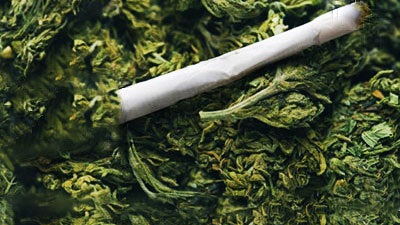
Argieffoto
ʼn 61-jarige vrou is in die Oos-Kaap in hegtenis geneem nadat sy glo dagga verkoop het.
“Die daga is in drie houers, wat met komberse toegedraai was, opgespoor,” het maj. Zamukulungisa Jozana, woordvoerder van die polisie in die Oos-Kaap gesê. Die dagga, wat sowat drie kilogram geweeg het, is in Mqanduli naby Mthata opgespoor.
Twee mans, onderskeidelik 24 en 29 jaar oud, is in ʼn aparte voorval in dieselfde gebied aangekeer. “Hulle word aan verskeie huisbrake en diefstalle in die omgewing, wat sedert Januarie 2013 plaasgevind het, verbind.” Die drie sal Maandag in die Mqanduli-landdroshof verskyn.




Firstly, apologies for commented in English,
Many rural families in South Africa, Swaziland and Lesotho depend on growing Dagga as a cash crop – it makes up a huge part of the GDP in Swaziland and pays for school feas, food and housing and sustains many families. In Lesotho, it is estimated to be the countries 3rd largest income source.
That is why you are hearing about young people & Gogos getting arrested for Dagga.
A study done by the Medical Research Council of South Africa indicates that Tobacco, Alcohol and Dagga are the top 3 used substances amongst youth in South Africa – and that the use of Hard Drugs is prevalent amongst impoverished communities who are socially and economically marginalized.
Prohibition is a failed policy that criminalizes people who are already at risk due to their social and economical environment. Treat substance abuse as a Health Care issue and not a Justice issue.
The catch is, of course, that if dagga was to be decriminalised, its market price would fall through the floor, as anyone who wanted to use it would easily be able to cultivate it themselves – the dagga plant that was growing like a weed in the presidential residence gardens that was in the news the other day being a case in point.
While the gogos growing dagga would then not have to worry about the risk of being caught, they’d also in any case not be able to make any money from growing dagga.
The only reason “drug lords” can exist, is because of the so-called “War on Drugs”.
People who can cultivate Dagga by themselves, on a personal scale, are already doing so – you can also brew your own beer and grow your own tobacco – yet there is still a large consumer market.
The same theory applies to Tomatoes, which grow like weeds – how many people grow their own tomatoes? and how many people just go buy them in the shops?
In order to cultivate at the quantity and quality at which Swaziland produce(for large scale export) requires large scale farming skill and established logistics network – this vacuum, at least in the short to medium term, won’t be filled by anyone by who isn’t already doing it.
I’m not talking about decriminalization – I meant full scale legalization across the board, including Industrial Hemp. However, it is obvious that many, many people – including the SAP – depend on Dagga being illegal to reap profits in true black market fashion.
Legalisation(of all substances), at least initially will not do anything to effect the establish black markets and the associated criminal element, to believe that would be naive to say the least. But legalisation has Social and Health benefits – such at treating people who suffer with substance abuse as a Health issue and not a justice issue – as well as leaving the Gogo who is going about her business alone.
Countries who have liberal Drug polices such as Portugal and the Netherlands show that while drug use is roughly the same, there is a marked decline in Drug use amongst youth as well as a huge drop in HIV infections contracted through dirty needles.
In my opinion, The largest risk of legalising Dagga is if large corporations start growing Dagga in Swaziland and use industrial, chemical farming techniques and push the local growers out.
True, true – certainly there’d still be a market for “special varieties” and “quality” dagga, as well as for people who simply don’t want the hassle of growing their own. Still, the prices would be MUCH lower than before.
Yes, sorry, I should have used the word “legalisation” instead of “decriminalisation”.
Also true that the effect on the established gangs who control the drug trade would not be instantaneous, but it would be quick enough, and severe!
Don’t get me wrong, I’m not saying that legalisation would be a bad thing. I was just pointing out that you can’t “have your dagga and smoke it too”. Your last paragraph encapsulates what I was trying to say to some extent. With legalisation, the price would fall so far that the old gogo would not be able to make as much money as before by growing dagga.
“you can’t have your dagga and smoke it too”
I concur, you are correct – the road-map ahead will need to consider many factors.